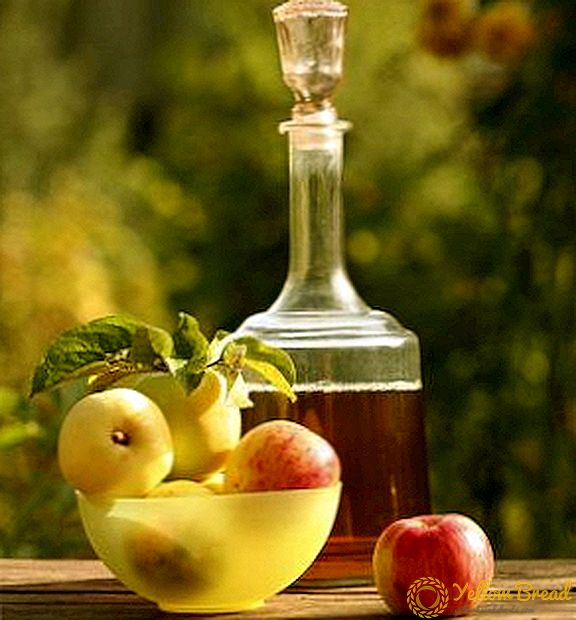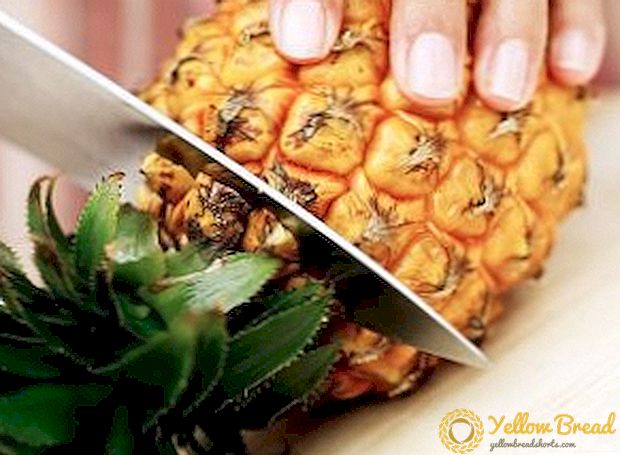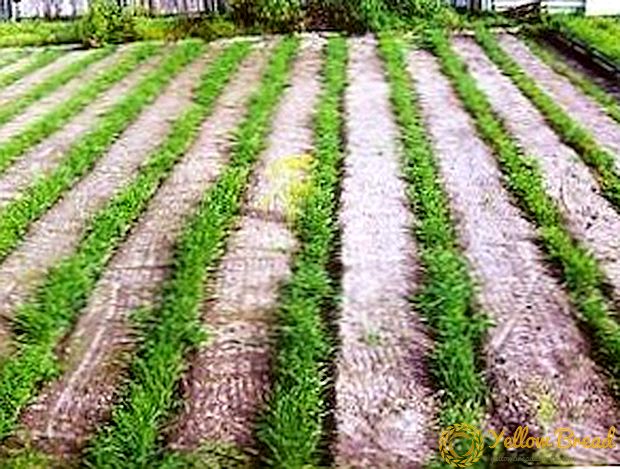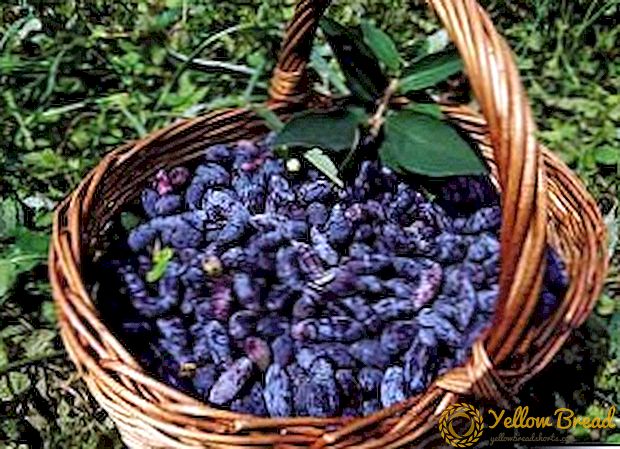 When the word "wine" in the head immediately arises an association with grapes.
When the word "wine" in the head immediately arises an association with grapes.
Indeed, grape wine is the most popular form of this alcoholic beverage.
But no less tasty and useful in reasonable doses of wine from other berries and fruits. Today we talk about how to make apple wine.
- The benefits and harms of the product
- How to make homemade wine from apples
- Selection and preparation of apples
- Squeezing and settling juice
- Adding sugar to the mixture
- Fermentation process
- Ripening and spilling apple wine
- Major cooking mistakes
The benefits and harms of the product
Apples are very rich in vitamins and other beneficial substances. They contain:
- vitamins of groups A, B, C;
- phytoncides and pectins;
- iron, potassium, zinc, magnesium;
- useful acids.
 This drink has a beneficial effect on the body:
This drink has a beneficial effect on the body:- relieves physical fatigue and relaxes muscles;
- intestinal motility is stimulated and the digestive system improves;
- reduces stress levels and relieves nervous tension;
- normalizes blood sugar and blood pressure, improves the condition of blood vessels.

How to make homemade wine from apples
Homemade apple wine has an extremely simple recipe and does not require any special skills or equipment. The first step is to select and prepare the fruit.
Selection and preparation of apples
To prepare any suitable varieties of apples: red, yellow, green. Choose ripe and more juicy fruits. You can mix varieties, resulting in other blends. Next you need to cut the core, otherwise the finished drink can taste bitter, and also remove damaged or rotten parts, if any. Do not wash the apples and do not peel off the peel, because they contain yeast cultures that contribute to the fermentation process.

Squeezing and settling juice
The next step is to get the juice. It is better to use the juicer, with its help the waste will be minimal. For lack of this device, grate the apples, and then squeeze through gauze. Your task is to get at least puree liquid consistency. Then the extracted juice (puree) is placed in a pan or other wide container and defend for 2-3 days.Tied on top with gauze to prevent insects from entering the liquid.  During this time, the fermentation process will start due to the presence of wild yeast, and the contents will be converted into two substances - apple juice itself and pulp (particles of pulp and peel). To ensure that the yeast is better distributed, mix the liquid several times a day for the first 2 days.
During this time, the fermentation process will start due to the presence of wild yeast, and the contents will be converted into two substances - apple juice itself and pulp (particles of pulp and peel). To ensure that the yeast is better distributed, mix the liquid several times a day for the first 2 days.
After three days the pulp forms a dense layer on the surface, it needs to be removed with a colander. This stage is completed when the smell of alcohol will be felt, as well as foam appeared. 
Adding sugar to the mixture
The second ingredient for the preparation of this drink is sugar. The proportions depend on the product that you want to get in the end. For dry apple wine, add 150-250 grams of sugar per liter of fermented juice, for dessert varieties - 300-400 grams of sugar. It is not recommended to exceed these norms, otherwise it may turn out to be cloying.

Fermentation process
The main condition for proper fermentation is the exclusion of contact with air, otherwise you will get vinegar. It is convenient to do it in glass bottles or plastic bottles. It is also necessary to provide for the removal of carbon dioxide, which is formed as a result of fermentation. This can be organized in the following way: a small hole is made in the lid of the container, a flexible tube of a suitable diameter is inserted into it (for example, a hose from a dropper).
The end of the tube in the vessel should not come into contact with the liquid, the other end is immersed in a small container filled with water. Thus, carbon dioxide will be removed, but at the same time there will be no access of air. Such a system is called a water seal.  Another simpler way is to put on a medical glove container on the neck, in which a hole is nailed with a needle. Also on sale you can find special cover-traps.
Another simpler way is to put on a medical glove container on the neck, in which a hole is nailed with a needle. Also on sale you can find special cover-traps.
The container is not filled to the top with juice so that there is room for foam and gas. The tank is stored in a warm, dark place. The fermentation process lasts 1-2 months. Its end is indicated by the absence of bubbles in a glass with water or a deflated glove. A precipitate appears at the bottom.
Ripening and spilling apple wine
At the end of the previous stage, we received a young wine, which can already be consumed, but it has a slightly sharp taste and smell. To eliminate these shortcomings requires exposure. Prepare another clean sealed container.
To exclude the presence of any yeast, thoroughly wash it with hot water and dry it with a hairdryer. Pour the liquid from one tank to another using a water trap tube, taking care not to touch the sediment.Hermetically sealed vessel with wine is kept in a cool dark place for 2-4 months.
 Once every two weeks, and less often with time, the sediment is removed by pouring wine into a new container. The drink is considered mature when the sediment stops falling or its amount becomes minimal. The finished drink has a rich amber color with a characteristic smell of apples. The strength of this wine is 10-12 °. It can be fixed by adding vodka to it during the maturation process (2-15% of the volume of the liquid). Apple wine is kept in hermetically sealed bottles for about three years.
Once every two weeks, and less often with time, the sediment is removed by pouring wine into a new container. The drink is considered mature when the sediment stops falling or its amount becomes minimal. The finished drink has a rich amber color with a characteristic smell of apples. The strength of this wine is 10-12 °. It can be fixed by adding vodka to it during the maturation process (2-15% of the volume of the liquid). Apple wine is kept in hermetically sealed bottles for about three years.
Major cooking mistakes
The most common mistake is souring the wort. This is due to insufficient sealing. Pay attention to the quality manufacturing of a hydraulic seal. It can also occur due to poor sugar mixing, as a result, it is unevenly distributed in the liquid and, accordingly, the wort also ferments unevenly. The finished wine may have an unpleasant taste.This is due to incomplete removal of sediment. In addition, it can occur when aging occurs in an insufficiently cool place. As you have seen from the above material, apple wine at home has a fairly simple recipe, although the process is stretched over time. But as a result, you will get a natural and useful product, at the same time disposing of excess apples from the dacha.






